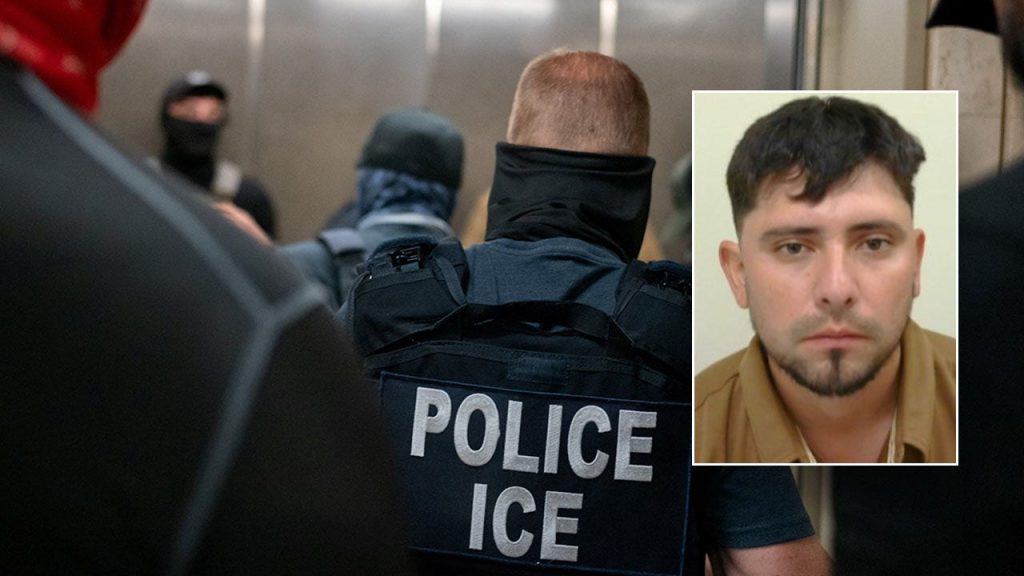A Brutal Crime, a Delayed Capture: The Case of Cesar Orlando Castro Serrano
In a case highlighting ongoing concerns about immigration enforcement and public safety, federal authorities recently apprehended Cesar Orlando Castro Serrano, an El Salvadoran national who had been evading capture since 2023. ICE agents arrested Castro Serrano on November 10 in Katy, a Houston suburb, bringing to close a manhunt for a man accused of shocking violence against a young woman. The arrest represents what officials describe as a renewed commitment to prioritizing the capture of undocumented immigrants accused of violent crimes. Assistant DHS Secretary Tricia McLaughlin made this clear in her statement following the arrest, emphasizing that the current administration would “not allow criminal illegal aliens to continue to victimize American citizens.”
The allegations against Castro Serrano are profoundly disturbing. According to authorities, in February 2023, he attacked a 22-year-old Houston woman with a tire iron, beating her in the head before sexually assaulting her and abandoning her in critical condition in a wooded area behind an apartment complex. The brutality of the alleged crime led to multiple serious charges: aggravated sexual assault, aggravated assault with a deadly weapon, and aggravated kidnapping. For nearly two years, Castro Serrano managed to avoid capture while these charges remained pending, leaving the victim and the community without closure or justice.
The case has a complicated immigration backdrop that spans multiple administrations. Castro Serrano reportedly entered the United States illegally in 2015, during the Obama administration. By the following year, an immigration judge had ordered his deportation, but for reasons not detailed in the reports, this deportation order was evidently not carried out. This gap between legal orders and enforcement actions represents one of the many challenges in America’s immigration system – where individuals ordered removed from the country may remain for years afterward, sometimes with tragic consequences for communities.
Following his recent arrest, Castro Serrano was transferred to the Harris County Sheriff’s Office to face the pending charges against him. In a standard procedure for cases involving undocumented immigrants accused of crimes, ICE has filed a detainer against him. This legal instrument requests that local authorities notify federal immigration officials before releasing Castro Serrano, allowing ICE to take him into federal custody after any criminal proceedings or sentences are completed. This coordination between local and federal authorities represents an important component of managing cases that cross jurisdictional boundaries.
Department of Homeland Security officials framed the arrest as part of a broader enforcement strategy. McLaughlin’s statement that “If you come to our country illegally and victimize Americans, we will find you and arrest you” signals the administration’s intent to prioritize cases involving violent crimes. The timing of the arrest, coming shortly after administrative changes at the federal level, suggests possible shifts in enforcement priorities. Immigration enforcement policies have been subject to significant changes between different presidential administrations, affecting which cases receive priority attention from limited federal resources.
The Castro Serrano case touches on complex debates about immigration policy, law enforcement priorities, and community safety. While the specific circumstances of this case involve particularly heinous allegations, it inevitably feeds into broader national conversations about border security, deportation procedures, and how the immigration system handles individuals who have received removal orders. For the victim of the alleged attack, however, these policy debates are secondary to the pursuit of justice in her specific case. After waiting two years while her alleged attacker remained at large, the arrest may represent the first step toward resolution in a deeply traumatic chapter of her life. As the case moves through the criminal justice system, both local and federal authorities will continue their respective roles in determining what consequences Castro Serrano will face for both the alleged violent crimes and his immigration status.


